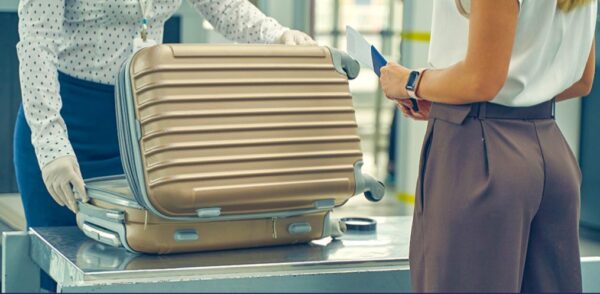Have you ever had to say goodbye to a favorite perfume, pocket knife, or sealed bottle of wine at the airport security checkpoint? You’re not alone.
Every day, airports around the world confiscate thousands of items from passengers—often for being too large, too sharp, or just not allowed on board.
But what actually happens to these confiscated goods once you walk away from the security belt?
Let’s unpack the journey of your forgotten or forbidden items.
Liquids over 100ml? Straight to the bin
One of the most common reasons for confiscation is liquids that exceed the 100ml limit. Think: water bottles, colognes, creams, and even that bottle of fine whiskey you forgot was in your carry-on.
-
What happens: These items are usually immediately disposed of—either poured out or thrown away—due to hygiene concerns or security regulations.
-
Why not donate them? Most liquid items can’t be redistributed for health and safety reasons.
Sharp or dangerous items are collected and sorted
Security frequently confiscates items like:
Customs seizures get more complicated
If customs officials confiscate items—like undeclared electronics, excessive tobacco/alcohol, or counterfeit luxury goods—the process is more formal.
-
What happens:
-
Counterfeit or illegal items are typically destroyed.
-
Legitimate but undeclared goods may be auctioned off by revenue services.
-
In South Africa, for example, SARS (South African Revenue Service) oversees this process and may list seized goods for public sale.
-
Lost or unclaimed luggage finds a new home
Sometimes it’s not security, but forgetfulness that leads to items being left behind.
-
What happens:
-
Unclaimed luggage is held for a set period (usually 30 to 90 days).
-
After that, it may be auctioned, donated to charity, or disposed of.
-
In the U.S. and UK, unclaimed airport goods are frequently sold through government auctions.
-
What about in South Africa?
-
At airports like OR Tambo or Cape Town International, items are managed by the Airports Company South Africa (ACSA).
-
Confiscated items that can’t be reused are usually destroyed.
-
Some useful or safe goods may be donated to local charities.
-
SARS may host public auctions for high-value seized goods like electronics, alcohol, or designer clothing.
Can you buy confiscated airport items?
Yes—depending on the country.
-
United States: The GSA Auctions site regularly lists surplus and confiscated goods.
-
United Kingdom: Some airports work with auction houses to sell lost and confiscated property.
-
South Africa: SARS occasionally runs official auctions, often listed online or through public notices.
While it might be fascinating to know where your confiscated goods go, it’s still best to double-check airline and airport rules before you fly. That way, your favorite cologne, multitool, or imported bottle of wine doesn’t end up in an incinerator—or someone else’s shopping cart.
Tip: Always pack liquids in checked luggage and leave sharp objects at home unless you’re sure they’re allowed.
